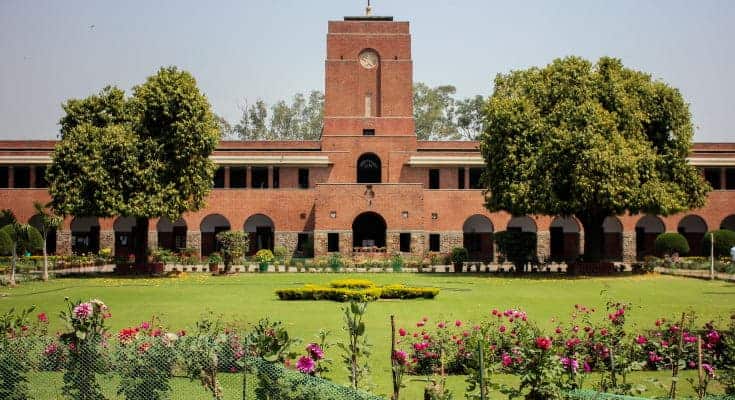On 20th January, 2020, Young India Coordination Committee called for Rally from Mandi House to Jantar Mantar, against Citizenship (Amendment) Act (CAA)-National Register of Citizens (NRC)-National Population Register (NPR), two days prior to Supreme Court’s hearing on the issue, along with All India Students’ Association (AISA), Krantikari Yuva Sangathan ( KYS ), Students’ Federation of India ( SFI ), All India Students’ Federation (AISF ) among others from Universties all over Delhi.
20th January, 2020, observed a mass rally of students marching from Mandi House to Jantar Mantar at 1 p.m. against CAA-NRC-NPR. The rally was called for by Young India Coordination Committee along with multiple student organizations like AISA, KYS, SFI, AISF, Jawaharlal Nehru University Student’s Union (JNUSU), JCC, Joint Forum for Academic and Social Justice, Karwan-e-Mohabbat, Shaheen Bagh Protest Committee (United Youth Brigade), We the People among others.
Harsh Mandar, prominent Social Activist, said, “We are fighting against hatred with our love and Constitution. The Young India is showing us the hope and we will take back our India.”
Hundreds of students belonging to different universities like University of Delhi (DU), Jawaharlal Nehru University (JNU), Jamia Millia Islamia (JMI) and other student organizations joined together to raise slogans of Azadi against the undemocratic and unsecular rule of the Government and against CAA-NRC-NPR.
They chanted slogans of “Inquilab Zindabad” (long live the revolution), “BJP hoshiyaar” (stay alert BJP), “Secularism Up-Up, Communalism Down-Down”, and sang popular songs improvised to create tunes of resistance.
N Sai Balaji, National President, AISA, said, “Young India is one such powerful platform which not only unites all students and youth but today has shown that they won’t get divided by hate. But have unitedly launched a campaign to defend citizenship and defend the Constitution.”
These protests are being held simultaneously in cities like Mallapuram, Mumbai, Hyderabad, Delhi, Pune, Ahmedabad, Patna, Kolkata, Allahabad, Varanasi, and many others against CAA-NRC-NPR.
“Just after two days the Supreme Court is going to hear the petitions challenging CAA so by this rally and across the country we are trying to give this message that this march means a public declaration, that this public is not in support of CAA, specifically the students, the young people of this country. We are against this CAA. We are born in a secular and country and will not let them (the Government) destroy the secular fabric of this country. India cannot accept secularism on religious lines,” quoted Kawalpreet Kaur, Delhi President, AISA.
The rally was followed by talks addressed by prominent speakers such as Harsh Mander, Umar Khalid, Gauhar Raza and Professor Ratan Lal among others at Jantar Mantar.
Umar Khalid, popular youth Social Activist and former student of Jawaharlal Nehru University, told DU Beat, “Young India today wants jobs and education. It does not want divisive laws like CAA or NRC or NPR. When we demand education, what does the government tell us? That spending on education is a waste of taxpayer’s money. But our money is not gonna be spent on putting us through an exercise in which we will be forced to prove our citizenships. They are using our money to strip us of our rights and we cannot allow that to happen. The government does not have that right. The government is here to serve us, not lord over us. Citizens also have rights. We are demanding those rights- right to education, right to employment, right to healthcare.”
Dipankar Bhattacharya, General Secretary Communist Party of Indi (ML), suggested that the country is fighting it’s second freedom struggle.
“This law has been brought to divide people based on their religion and if we allow them to do this, tomorrow it will lead to caste discrimination.” he further added.
Feature Image Credits: Gyanarjun Saroj for DU Beat
Aditi Gutgutia











